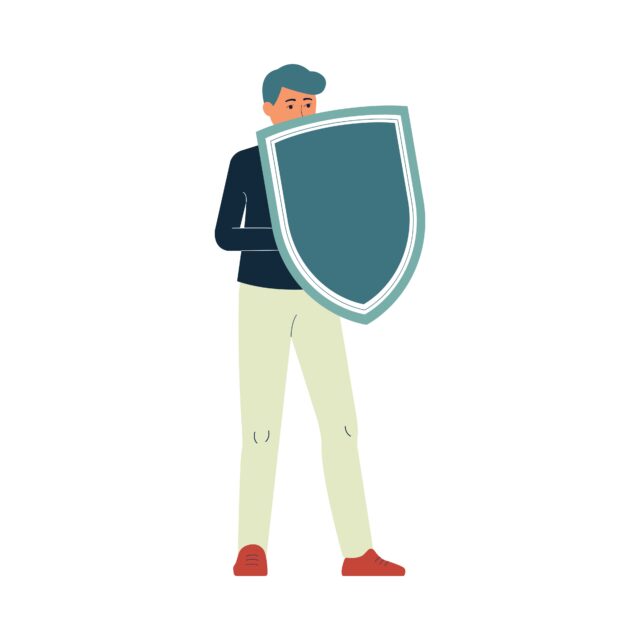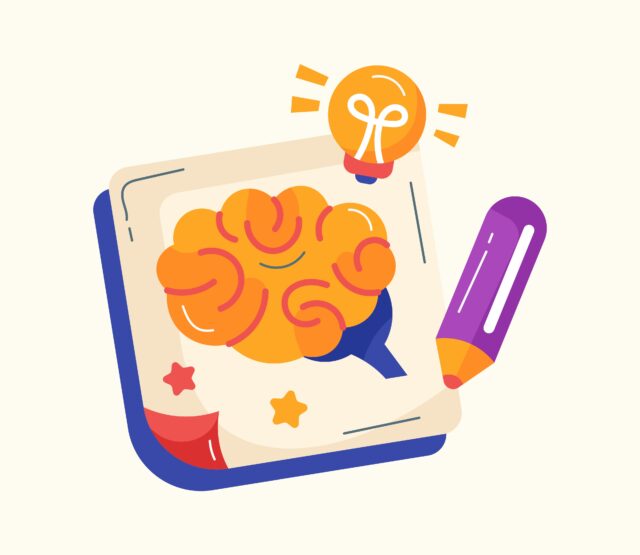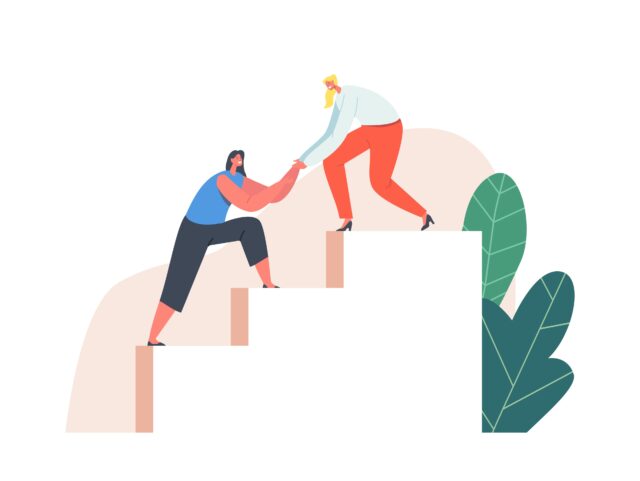 Contrary to the saying no regrets, we all feel remorse, shame, or guilt from particular moments in our lives. In most cases, our ego is the culprit behind our regrettable decisions. Because of too much ego, we’ve all missed job opportunities, failed to tell loved ones how much we love them, or stayed too long in unhealthy relationships.
Contrary to the saying no regrets, we all feel remorse, shame, or guilt from particular moments in our lives. In most cases, our ego is the culprit behind our regrettable decisions. Because of too much ego, we’ve all missed job opportunities, failed to tell loved ones how much we love them, or stayed too long in unhealthy relationships.
Our ego is part of our identity, but we shouldn’t let it take over our lives. Read on to learn more about the ego — what it is, its role in our lives, and how we can keep it in check.
What Is Ego?
To understand egos better, we have to discuss Sigmund Freud’s personality theory. According to the famous neurologist, human personality is a complex subject with three core components: the id, the ego, and the superego.
- From the moment we enter the world, the id is already with us. It is the primitive and instinctive personality component that responds to our natural urges.
- The ego evolves from the id to ensure that we address our desires and needs in an acceptable manner. Freud described it as “the part of the id which has been modified by the direct influence of the external world.”
- Our superego emerges around age five to act as a self-critical conscience.
According to Freud’s definition, the ego is the decision-making component of our identity. It mediates between the unrealistic id and the outside world. Unlike the id, reason is the guiding force behind the ego.
Here are some functions of the ego:
- External perception
- Self-awareness
- Problem-solving
- Motor functions
- Adapting to reality
- Memory
- Reconciling conflicting ideas
When it comes to a person’s identity, the ego is the executive agency that oversees functions, providing us with direction and guidance. Without it, we would do whatever we pleased without any thought of consequences.
Let’s delve deeper into how the ego works.
How the Ego Works
The ego functions based on the reality principle — a mechanism that requires individuals to forgo instant gratification for a more appropriate time. It also works to achieve a balance between our moral standards created by the superego.
For example, our ego prevents us from eating lunch during a job interview. We might be hungry, but we could eat after the meeting.
It stops us from breaking up with a partner in public. Such conversations can wait until we’re in a private space.
It makes us think twice about calling out a boss in front of our clients. After all, internal office affairs should stay within the group.
However, while our ego works in our preconscious and conscious minds, it has a powerful bond with the id. In most cases, the ego prevents us from doing things we naturally want to do because of how the world might react. It doesn’t care too much about what we think is right.
It’s the voice that told us not to raise our hands in first grade even if we knew an answer to a question. What would the teacher do if the answer was wrong?
It’s the voice that told us not to kiss our parents in public as teenagers. What would our friends say?
It’s the voice that told us not to listen to an intern’s idea. How would colleagues react if a younger person outsmarted the manager?
If you’re not aware of how your ego affects your life, you will have many regrets in the future. Read on to learn more about the negative side of an egocentric life.
The Negative Effects of a Big Ego
The ego is not a bad personality component. However, in most cases, people don’t know that their egos have taken over the id with little regard for the superego. We often dub these individuals egotistical.
Humans with big egos are not intrinsically bad, but they make decisions based on other people’s opinions instead of what they think is right. Let’s look at how such behavior can affect your life negatively.
Ineffective Leadership
Egotistic leaders tend to reject great ideas, hoard credit, and put people down. They always want to be the smartest people in the room. In most cases, these leaders dampen the productivity and motivation of a team.
On the other hand, effective leaders always have the company’s best interest at heart. They make decisions based on what they think is right and not others’ opinions. Check out my book to learn more about the dynamics of letting ego run the workplace.
Shallow Relationships
Egotistic individuals care too much about what other people think. Instead of building genuine connections with other people, they think about petty things like how their friends will like their partners or if their significant others will elevate their social status.
Additionally, these individuals often dominate conversations and barely listen to other people. Again, they’re not necessarily ill-meaning people. Watch this video to understand the motivation behind these individuals’ behavior better.
Vicious Complacency
People with big egos often overestimate themselves and underestimate colleagues and competitors. They are too proud to accept training sessions, improvement suggestions, and constructive criticism.
These individuals often think they are irreplaceable and don’t make moves to make themselves better or acknowledge their weaknesses.
Ways to Control Your Ego
If you want to control your ego to improve your personality, you have to become aware of how it affects your relationships with colleagues, relatives, friends, and partners.
When you start to think about the motivation behind your acts, you will understand other people better. You will start noticing other egotistical individuals around you, and you will find yourself dealing with them better.
Let’s look at some foolproof ways to keep your ego in check.
1. Do Something Nice for Someone
Are you the type of person who finds it challenging to perform random acts of kindness for other people? It’s because your ego often gets in the way.
One of the best ways to overcome your self-consciousness is to go out of your way to do something nice for someone. Here are some easy ones to try:
- Compliment a subordinate in a meeting.
- Cook breakfast for your family.
- Buy a meal for a homeless person.
Don’t think about the consequences of your actions; just keep doing nice things for other people. This habit will help you think of more important things in life than other people’s opinions.
2. Tell Someone Something You’ve Wanted to for a While
Egotistical people often concern themselves about what other people think, leading them to avoid saying things they mean to say. Our egos are experts at preventing us from expressing ourselves genuinely.
For example, don’t be ashamed to tell loved ones how much they mean to you. If you think your dad is the best person in the world, go ahead and say it. Doing so will help you eliminate future regrets. After all, we often regret the things we never did or said.
3. Listen to Other People
Often, people with big egos indulge in one-sided conversations. They want to look opinionated, urging them to dominate discussions. If you often find yourself talking over others, you might have a big ego. There is a cure for this: start listening to other people!
Before you respond in a conversation, let the person you’re talking to finish their train of thought. Also, don’t pretend to listen. Hear the other person out for real. Doing so will help you learn new things and earn other people’s trust. Learn how to monotask and be present in my book.
4. Learn a New Skill
If you really want to keep your ego in check, become a newbie at a new skill. This strategy is one of the most humbling experiences. Try something that excites you, like cooking, video production, or information technology.
Somewhere between your first class and mastering a skill, you will feel like the worst student in the room. When this happens, let go of your fears and doubts and ask for help. Find people more knowledgeable than you are and listen to their advice. Not only will you learn a thing or two about yourself, but you might also find new friends along the way.
5. Stop Complaining
A Southern Living article reveals that the average person complains anywhere between 15 to 30 times a day. In most cases, people with big egos find themselves taking everything personally.
For example, if you get Starbucks coffee on the way to work, don’t grumble about the line or your misspelled name. Instead, be grateful that you have the time to enjoy a fresh cup away from home.
When you find yourself stuck in traffic, don’t whine about it. You can use the time to listen to your favorite songs or podcasts.
Lastly, when you find yourself experiencing WiFi troubles, don’t make a fuss about it. Instead, focus on what you can do even without an internet connection.
Stop complaining and enjoy every moment. Doing so will keep you grounded.
Final Thoughts
The ego is not a negative force, but in most cases, it’s not your friend (your ego is not you amigo, as I sometimes say). It cares too much about the outside world to let you be your true self. If you let it command you, you will discover that it can lead to ineffective leadership, shallow relationships, and vicious complacency.
Thankfully, Interested in more? Send me a message to learn about my transformative self-improvement programs.












